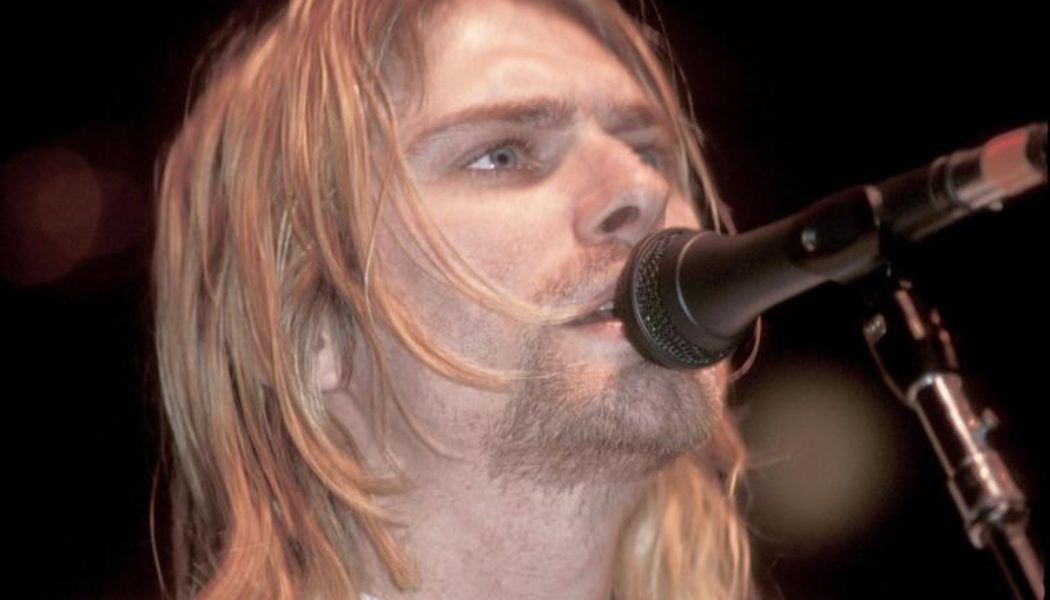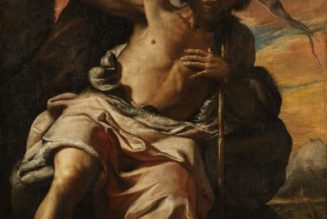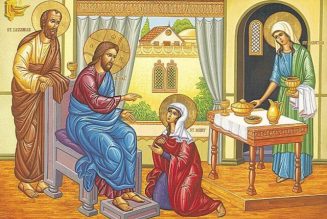
“You can’t fire me because I quit.” —From Nirvana’s “Scentless Apprentice”
The teenagers, many girls especially, went crazy for Frank Sinatra. A little while after that the teenagers, again girls in particular, all went crazy for Elvis. After that the teenagers got themselves caught up in Beatlemania. And then, not too long after that, the teenagers got really into …
To read such a list, arriving at Taylor Swift today and leaving plenty of space for those future iconic musicians, would feel much like reading an Old Testament listing of kings. Each of us, depending on our age, would get our turn to say “I got really caught up in that one.” And as dry as any such reading may be, the point of it would be that adolescents have been making idols of popular musicians for quite some time.
Most adolescents hardly fathom how they, like adolescents of past generations, tacitly pressure one another to “like” the same stuff. “All of my friends are listening to it” is all that a teenager needs to be reminded of in order for an artist’s music to spread forth like wildfire. That musician, after having produced enough hit songs, typically goes on to have a god-like status for the remainder of their young fans’ lives.
I, for one, don’t care who Taylor Swift happens to be dating. But plenty of those of us who couldn’t have cared less still heard all about it during this past football season, because she has indeed been idolized.
Those of us who grew up in the 1990s had our own turn to idolize icons of the day. The alternative rock scene had become quite the craze. Grunge rock, a sound that had emerged from the music scene in Seattle, swiftly paved a path for the mainstream success of many other alternative bands that were influenced by it during the early and mid-1990s.
Nirvana’s Nevermind, featuring the anthem hit “Smells Like Teen Spirit,” among others, almost immediately impacted the musical landscape. It sounded rather different from those other rock hits that had been playing on FM radio and MTV just prior to it. Other Seattle-based bands had suddenly found wider audiences following Nirvana’s commercial success: Pearl Jam, Soundgarden and Alice in Chains. This went on to influence and help catapult other 90’s alternative bands to commercial success: the Stone Temple Pilots, Live, Bush and the Smashing Pumpkins.
Those were the bands I listened to while playing air guitar back when I was a teenager.
Kurt Cobain, Nirvana’s guitarist and singer, became an anti-establishment icon. He was widely perceived as a man who’d refused to bend to the whims of those who could promise him more money. His often-angsty lyrics struck a chord with countless gloomy teens (and I was among the whiniest of them all). He became labeled as a “voice of a generation” for those in Generation X. He had the musical talent that so many of us dreamt of having in our rock-and-roll fantasies.
My own rock-and-roll fantasies never came to fruition, largely because I’d played far more air guitar than real guitar. It was in such fantasies that I could have it all: a big house, the adoration of millions of fans, legions of women eager to throw themselves at me, invitations to the most exclusive places and events, months of traveling on “world tours” that never made stops anywhere in the world outside of the countries of the West and Japan.
To live such a life, I’d figured, would be happiness.
None of those old fantasies made much room for fame’s downsides: the pressure to maintain commercial success, the inability to have any private moments in public spheres, having “relatives” constantly appear from out of nowhere to beg for money, or the dark places where endless pleasure-chasing very often lead. No such room had been made despite the caveat that Kurt Cobain, an idol of mine, was not a happy man. April 5 of this year is the 30th anniversary of his suicide.
“Fallout and take the bait, eat the fruit, and kiss the snake goodnight.” —From Soundgarden’s “Pretty Noose”
Cobain’s parents divorced when he was still a child. Much of his childhood and adolescence had been spent bouncing from one home to another, primarily in Aberdeen, Washington. His own very strongly-felt resentments developed throughout those years. He was in his early teens when he first recreationally smoked marijuana. From there he went on to dabble with more potent drugs — eventually even heroin, the addiction that eventually possessed him.
He lived, for a little while, with the Evangelical Christian family of a friend of his during his late teens. During that time he began to regularly attend church services, got himself involved in a church youth group, and sought to rid himself of alcohol and marijuana. His born-again journey was brief, and he fell back into his destructive habits. Nirvana’s hit song “Lithium” was in large part inspired by Cobain’s experience as a churchgoer.
Nirvana was formed in 1987. Their debut album, which had very modest sales, was released in 1989. It was in 1990 that Dave Grohl (now the Foo Fighters frontman) was hired as Nirvana’s drummer, that the trio signed a deal with a major record label, and that work on 1991’s Nevermind had begun. DGC Records had hoped that Nevermind would go on to sell a total of around 250,000 units. Worldwide sales are estimated to be at around 30 million units as of today.
Cobain had suddenly catapulted from supporting himself with menial jobs, and playing gigs at bars for chump change, to rock superstardom at the age of 24. He married rocker Courtney Love, the lead singer of Hole, while she was pregnant with their child in 1992. The pressures that fame had imposed, both personally and professionally, quickly became a burden for him. He continued to struggle with chronic depression and drug use all the while, and nearly died of an overdose on several occasions.
Cobain was found dead, from a self-inflicted gunshot wound, in his Seattle home on April 8, 1994. He’d escaped from a rehabilitation center in the Los Angeles area a week earlier, and was believed to have killed himself on April 5. He was 27 years old.
The frontmen of several renowned 90’s alternative rock bands would go on to follow in Cobain’s footsteps, dying by self-destructive means.
“We chase misprinted lies, we face the path of time, and yet I fight, and yet I fight, the battle all alone, no one to cry to, no place to call home …” —From Alice in Chains’ “Nutshell”
April 5 is likewise believed to be the anniversary of the death of Layne Staley, lead singer of Alice in Chains. Staley had overdosed on a combination of heroin and cocaine at the age of 34. His body was finally found in his home on April 19, 2002.
The Stone Temple Pilots’ Scott Weiland died of a drug overdose in 2015. Soundgarden’s Chris Cornell committed suicide in 2017. Sublime’s Bradley Nowell died of a drug overdose in 1996, just a few months before the release of the band’s eponymous breakthrough album. Blind Melon’s Shannon Hoon died of a heart attack, caused by a cocaine overdose, in 1995.
May all of them rest in peace.
I don’t consider any of these men to be exceptionally “bad” men. How can I say, with any degree of certainty, that I myself wouldn’t have fallen into the same snares had I been in their shoes? How can any of us be so sure?
Those whom we idolize remain human. They have the very same frailties as the rest of us, and idols of their own.
“I, the Lord, am your God. You shall not have any other gods besides me.” —The 1st Commandment
I admire all of these men for having had talent, and for what they’d accomplished during their lives. I continue listening to much of their music. But I wouldn’t consider any of them to be role models.
So many of us fool ourselves into believing that all would be well if we could just “have it all.” But each of these men, having “had it all” in the eyes of millions, are reminders that true purpose is found elsewhere than in our worldly fantasies. Fame and fortune may very well have even exacerbated many of their struggles. And what’s anyone supposed to do when “having it all” gets kind of boring anyway?
Those who are most suitable to be our role models are those who sought joy, rather than “happiness.” Some who’d found joy were indeed rich or famous. Far more than that were those who’d embraced Sister Poverty, and who were perfectly content to live their lives in obscurity. Their joy never depended on anything so cheap as “having it all.” They are the saints.
April 5 is the anniversary of Kurt Cobain’s tragic death. April 5 is also the Feast of St. Vincent Ferrer, the anniversary of a purposeful man’s entrance to his Eternal Home. Our idols die. God’s saints remain very much alive.
For what will it profit them if they gain the whole world but forfeit their life? Or what will they give in return for their life? —Matthew 16:26









